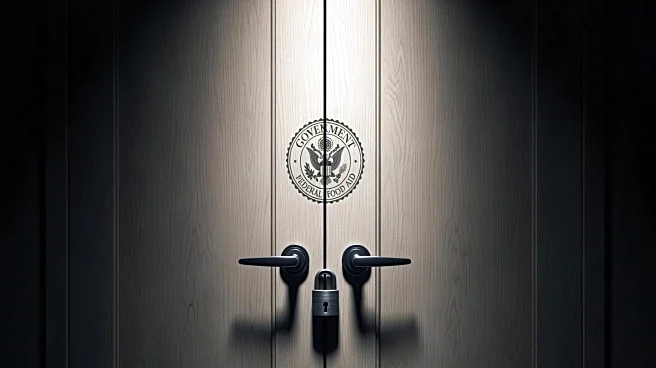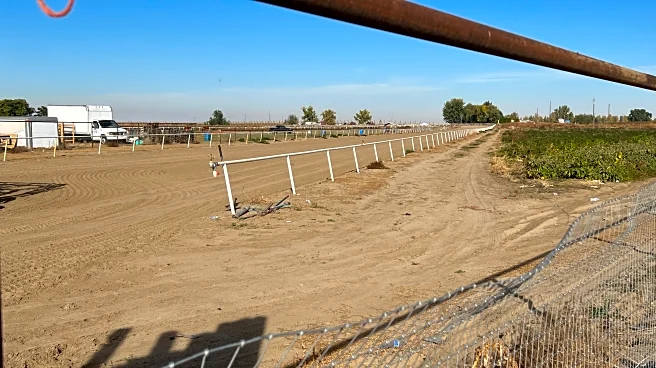What's Happening?
The U.S. Department of Agriculture has announced that federal food aid will not be distributed on November 1 due to the ongoing government shutdown. This decision follows the Trump administration's refusal
to utilize approximately $5 billion in contingency funds to maintain the Supplemental Nutrition Assistance Program (SNAP) benefits into November. SNAP is a critical program that assists about one in eight Americans in purchasing groceries. The shutdown, which began on October 1, is now the second-longest in U.S. history. The administration has attributed the impasse to Senate Democrats, who demand negotiations on extending expiring subsidies under the Affordable Care Act before agreeing to reopen the government. In response, Democratic lawmakers have urged Agriculture Secretary Brooke Rollins to use contingency funds to cover next month's benefits, but a USDA memo indicates these funds are reserved for disaster relief and not regular benefits.
Why It's Important?
The suspension of SNAP benefits could have significant repercussions for millions of Americans who rely on this assistance for their daily food needs. The decision not to use contingency funds highlights the political standoff between the Trump administration and Senate Democrats, with both sides blaming each other for the ongoing shutdown. The lack of food aid could exacerbate food insecurity across the nation, particularly affecting low-income families. Some states have pledged to continue SNAP benefits independently, but they face challenges regarding reimbursement and federal directives. The situation underscores the broader impact of political gridlock on essential services and vulnerable populations.
What's Next?
As the shutdown continues, pressure is mounting on both political parties to reach a resolution. The potential cessation of SNAP benefits may force states to find alternative solutions to support their residents, though the feasibility of such measures remains uncertain. The political deadlock may also prompt increased public outcry and advocacy from civil society groups demanding action. The outcome of this situation could influence future negotiations and strategies regarding government funding and social welfare programs.










